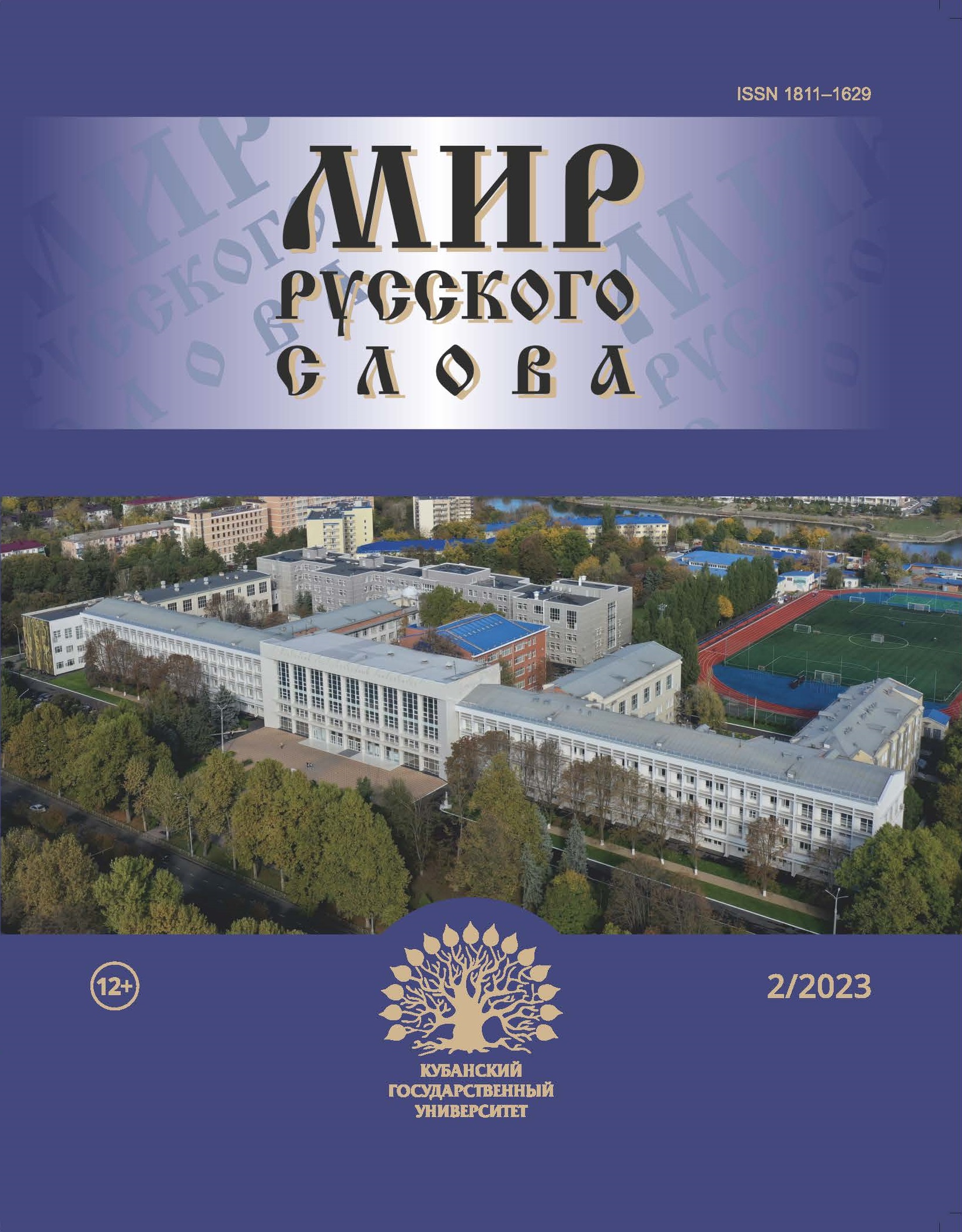Typology of the Thematic Group “Toys” in the Russian Language of the 21st Century
DOI:
https://doi.org/10.21638/spbu30.2023.204Abstract
In the article, the author addresses the definitions of the concept of “toys” and their functions, as well as existing classifications in psychology, pedagogy, didactics and marketing (trade). The definitions of a “thematic group” (TG) are considered and a working formulation of the concept is given. A morphological and syntactic analysis of the collected empirical base was carried out, where the names of toys and games, works of children’s literature and the National Corpus of the Russian Language were selected as sources. Several types of lexical units of the TG “Toys” are presented: individual lexemes (nouns, adjectives, verbs), phrases (simple, multi-component). The author also identifies five groups of verbs: expressing rational, irrational action; actions characteristic of a person, sounds and verbs of movement. Based on the analyzed classifications and collected empirical material (1800 lexemes related to the TG “Toys”), a typology is created that reflects systemic relationships at the lexical level of the modern Russian language. Three main thematic areas, fields of nominations for this TG in the Russian language of the 21st century have been identified: natural, artificial and virtual toys. The thematic area “Natural toys” includes two subgroups: natural objects and household objects. The composition of the term “Artificial toys” is described by ten lexical-semantic groups. The thematic area “Virtual toys” includes three lexical and semantic groups. The identification of the third TO — “Virtual toys” — is a new phenomenon for the classification of toys not only in linguistics, but also in the wide field of this concept.
Keywords:
thematic group, lexical-semantic group, typology, toys, computer games
Downloads
References
Downloads
Published
How to Cite
Issue
Section
License
Articles of "The World of Russian Word" are open access distributed under the terms of the License Agreement with Saint Petersburg State University, which permits to the authors unrestricted distribution and self-archiving free of charge.




